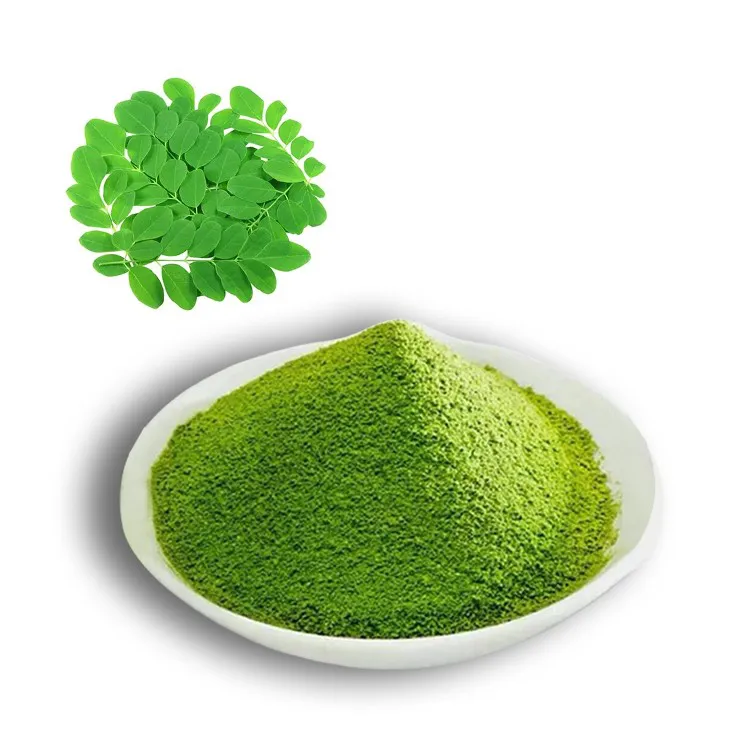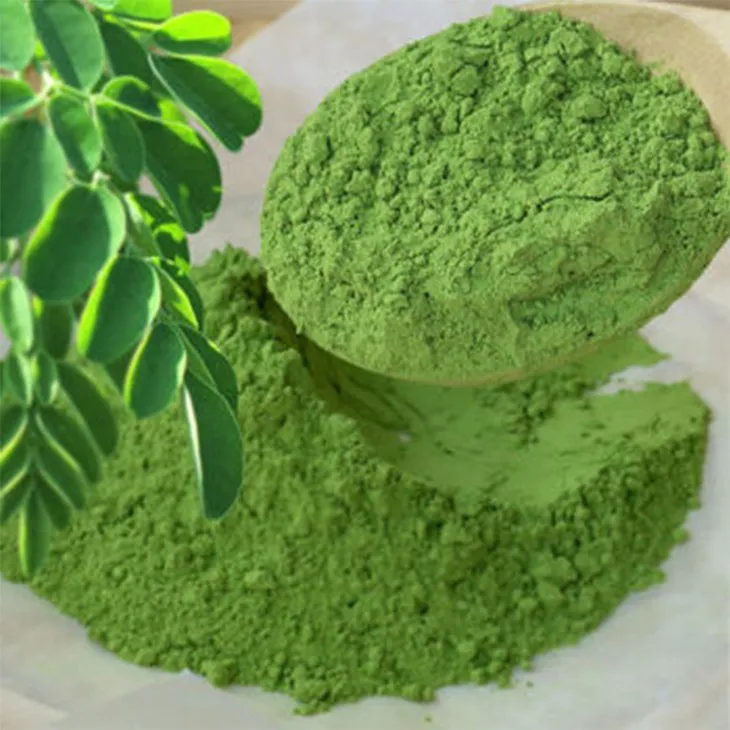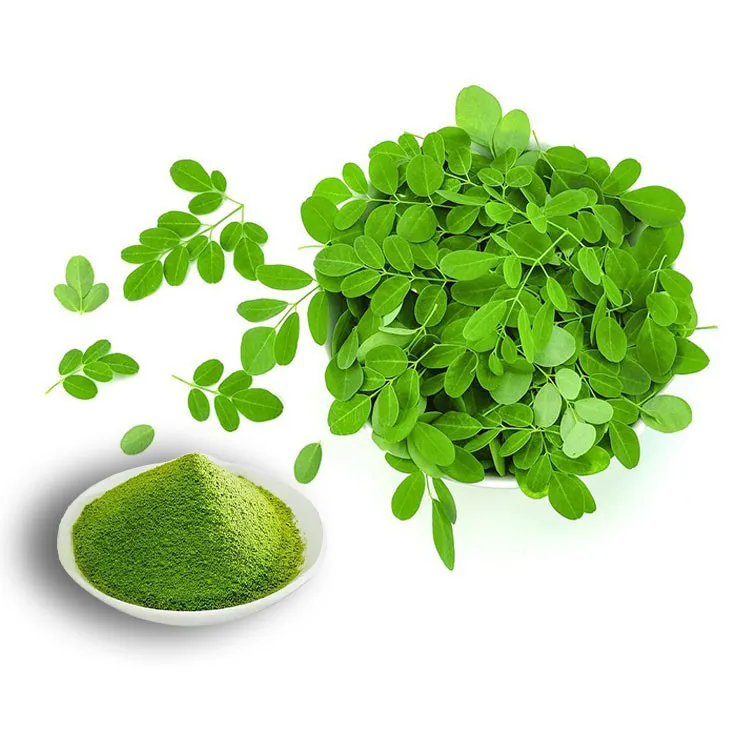- 0086-571-85302990
- sales@greenskybio.com
Mature Moringa Taste and Natural Moringa Powder
2024-11-13

1. Introduction to Moringa
Moringa, also known as the "miracle tree," has been gaining significant popularity in recent years. This multi - purpose tree is native to parts of Africa and Asia and has been used for centuries in traditional medicine and cuisine. The moringa tree is highly valued for its various parts, including its leaves, pods, seeds, and flowers, all of which possess unique properties.

2. The Taste of Mature Moringa
Mature moringa has a distinct taste that is a result of its growth and development. As the moringa tree matures, its leaves develop a more complex flavor profile. The taste can be described as rich, earthy, and somewhat peppery. It has a depth that is often compared to other strong - flavored leafy greens like kale or spinach, but with its own unique twist.
2.1. Factors Affecting the Taste
Several factors influence the taste of mature moringa. Soil quality plays a crucial role. Moringa trees grown in nutrient - rich soil tend to have leaves with a more pronounced and pleasant taste. Climate conditions also matter. Adequate sunlight and water availability can enhance the development of flavors in the leaves. Additionally, the time of harvest affects the taste. Leaves harvested at the right maturity level will have the optimal flavor.

3. Natural Moringa powder: Production and Properties
Natural Moringa powder is made from the dried leaves of the moringa tree. The production process involves carefully harvesting the mature leaves, washing them thoroughly to remove any dirt or impurities, and then drying them. This drying can be done through sun - drying or using low - temperature drying methods to preserve the nutrients. Once dried, the leaves are ground into a fine powder.
The resulting powder is a nutritional powerhouse. It is rich in vitamins such as vitamin A, vitamin C, and various B - vitamins. It also contains essential minerals like potassium, calcium, and iron. Antioxidants are also present in high amounts in Moringa powder, which helps in fighting oxidative stress in the body.

4. The Flavor of Natural Moringa Powder
Natural moringa powder imparts a subtle flavor to the dishes it is added to. The flavor is a milder version of the fresh mature moringa leaves. It has a slightly herbal and green taste. When added to smoothies, for example, it gives a pleasant earthy note without overpowering the other flavors. In baked goods, it adds a unique touch that is both healthy and flavorful.
4.1. Blending Flavors with Moringa Powder
Moringa powder can be easily blended with other flavors. In a smoothie, it pairs well with fruits like bananas, mangoes, and berries. The sweetness of the fruits helps to balance the earthy flavor of the moringa powder. In savory dishes, it can be combined with spices such as cumin, coriander, and turmeric. This combination not only enhances the flavor but also adds to the nutritional value of the dish.
5. Nutritional Benefits of Moringa
Both mature moringa and moringa powder offer a plethora of nutritional benefits. As mentioned earlier, they are rich in vitamins and minerals. The high vitamin C content helps in boosting the immune system, while calcium is essential for strong bones and teeth. The iron in moringa is beneficial for preventing anemia.
Moringa also contains amino acids, which are the building blocks of proteins. This makes it a great addition for vegetarians and vegans who may need to supplement their protein intake. Additionally, the antioxidants in moringa help in reducing inflammation in the body, which is linked to various chronic diseases.
6. Uses of Mature Moringa and Moringa Powder
6.1. In Cooking
Mature moringa leaves can be used in cooking in various ways. They can be added to soups, stews, and curries, much like other leafy greens. The peppery flavor adds a unique dimension to these dishes. Moringa powder, on the other hand, can be used in baking. It can be added to bread, muffins, and pancakes to make them more nutritious. It can also be used as a seasoning for roasted vegetables or added to salad dressings.
6.2. In Beverages
Moringa powder is a popular ingredient in beverages. It can be added to smoothies, as mentioned before, for a quick and healthy boost. It can also be used to make herbal teas. Steeping moringa powder in hot water creates a soothing and nutritious drink that is rich in antioxidants.
6.3. In Traditional Medicine
In traditional medicine, moringa has been used for various ailments. It has been used to treat digestive problems, such as constipation and diarrhea. The anti - inflammatory properties of moringa make it useful for treating conditions like arthritis. It has also been used to improve skin health, with some traditional remedies using moringa poultices for skin infections or to promote wound healing.
7. Why Moringa is Becoming Popular
There are several reasons why moringa, both in its mature leaf form and as powder, is becoming increasingly popular. Health consciousness is a major factor. As people are becoming more aware of the importance of a healthy diet, they are seeking out nutrient - dense foods like moringa. The fact that it is a plant - based source of nutrition also makes it appealing to vegetarians and vegans.
Another reason is its versatility. Moringa can be easily incorporated into different types of diets and cooking styles. It can be used in both sweet and savory dishes, and in beverages as well. Additionally, the relatively easy cultivation of moringa trees in many regions means that it is becoming more accessible and affordable.
8. Tips for Selecting and Storing Moringa
8.1. Selecting Moringa
When selecting mature moringa leaves, look for leaves that are fresh, vibrant green, and free from any signs of wilting or discoloration. If buying moringa powder, choose a high - quality product. Check for a fine texture and a fresh, earthy smell. Avoid powders that have a musty or off - odor.
8.2. Storing Moringa
If you have fresh moringa leaves, store them in the refrigerator in a plastic bag or container. They will stay fresh for a few days. Moringa powder should be stored in a cool, dry place in an airtight container. This will help to preserve its nutrients and flavor for a longer period.
9. Precautions and Side Effects
While moringa is generally safe for consumption, there are some precautions to keep in mind. In large quantities, moringa may cause digestive upset, such as nausea and diarrhea. Pregnant women should consult their doctor before consuming moringa, as there is limited research on its effects during pregnancy. Also, people with thyroid problems should be cautious, as moringa may interfere with thyroid function in some cases.
10. Conclusion
Mature moringa and natural moringa powder offer a unique taste and a wide range of nutritional benefits. Their versatility in cooking, beverages, and traditional medicine makes them valuable additions to our diets. However, it is important to be aware of the precautions and select and store them properly. As the popularity of moringa continues to grow, it is likely that we will see more innovative uses and products incorporating this "miracle tree" in the future.
FAQ:
What is the unique taste of mature moringa?
Mature moringa has a rich and deep taste that is quite alluring and one - of - a - kind.
How is natural moringa powder made?
Natural moringa powder is made from the dried leaves of the moringa tree.
What are the nutritional values of natural moringa powder?
Natural moringa powder retains all the goodness of the moringa leaves. It is rich in various nutrients such as vitamins, minerals and antioxidants, which can be beneficial for overall health.
How can natural moringa powder be used in the diet?
It can be added to smoothies, soups, salads or used in baking. It imparts a subtle flavor while adding nutritional value to the food.
Why are mature moringa and natural moringa powder becoming more popular?
The unique taste of mature moringa and the nutritional value of natural moringa powder are two main reasons. Also, as people are more conscious about healthy and natural food options, these products are gaining more attention.
Related literature
- The Nutritional Benefits of Moringa"
- "Moringa: A Superfood with a Unique Flavor"
- "The Versatility of Natural Moringa Powder in Culinary Arts"
- ▶ Hesperidin
- ▶ Citrus Bioflavonoids
- ▶ Plant Extract
- ▶ lycopene
- ▶ Diosmin
- ▶ Grape seed extract
- ▶ Sea buckthorn Juice Powder
- ▶ Fruit Juice Powder
- ▶ Hops Extract
- ▶ Artichoke Extract
- ▶ Mushroom extract
- ▶ Astaxanthin
- ▶ Green Tea Extract
- ▶ Curcumin
- ▶ Horse Chestnut Extract
- ▶ Other Product
- ▶ Boswellia Serrata Extract
- ▶ Resveratrol
- ▶ Marigold Extract
- ▶ Grape Leaf Extract
- ▶ New Product
- ▶ Aminolevulinic acid
- ▶ Cranberry Extract
- ▶ Red Yeast Rice
- ▶ Red Wine Extract
-
Mango flavored powder
2024-11-13
-
Black Rice Extract
2024-11-13
-
Yellow Pine Extract
2024-11-13
-
Baicalin
2024-11-13
-
Polygonum Cuspidatum Extract
2024-11-13
-
Lily extract
2024-11-13
-
Bayberry Extract
2024-11-13
-
Beetroot Powder
2024-11-13
-
Propolis Extract Powder
2024-11-13
-
Grape Leaf Extract
2024-11-13





















